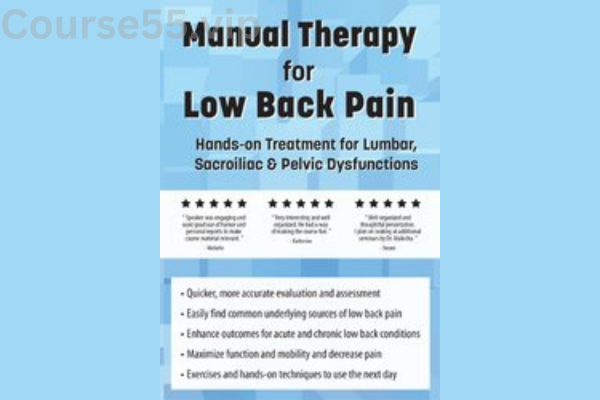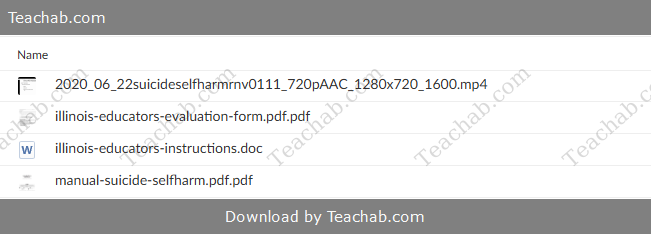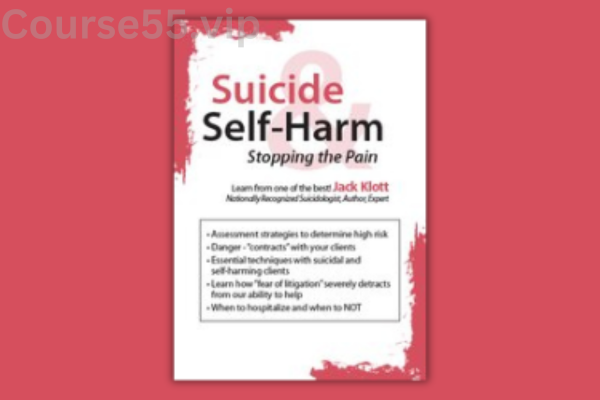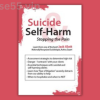-
×
 What to Do in the First 90 Days of Your New Job
1 × $23.10
What to Do in the First 90 Days of Your New Job
1 × $23.10 -
×
 Legal Issues in Behavioral Health Maryland: Legal and Ethical Considerations By Lois Fenner - PESI
1 × $23.10
Legal Issues in Behavioral Health Maryland: Legal and Ethical Considerations By Lois Fenner - PESI
1 × $23.10 -
×
 New Rules for Treating Trauma: Integrating Neuroscience for Resilience, Connection and Post-Traumatic Growth By Courtney Armstrong - PESI
1 × $23.10
New Rules for Treating Trauma: Integrating Neuroscience for Resilience, Connection and Post-Traumatic Growth By Courtney Armstrong - PESI
1 × $23.10 -
×
 Ten Best-Ever Anxiety Treatment Techniques By Margaret Wehrenberg - PESI
1 × $23.10
Ten Best-Ever Anxiety Treatment Techniques By Margaret Wehrenberg - PESI
1 × $23.10 -
×
 Rewire the Anxious Brain: Neuroscience-Informed Treatment of Anxiety, Panic and Worry By Marwa Azab - PESI
1 × $23.10
Rewire the Anxious Brain: Neuroscience-Informed Treatment of Anxiety, Panic and Worry By Marwa Azab - PESI
1 × $23.10 -
×
 Advances in Motor Control and Learning for Neurological Rehab By Ben Sidaway - PESI
1 × $23.10
Advances in Motor Control and Learning for Neurological Rehab By Ben Sidaway - PESI
1 × $23.10 -
×
 Ultimate Guide Technical Trading
1 × $23.10
Ultimate Guide Technical Trading
1 × $23.10 -
×
 Using EMDR Across the Lifespan By Robert Tinker - PESI
1 × $23.10
Using EMDR Across the Lifespan By Robert Tinker - PESI
1 × $23.10 -
×
 The Complete Crowdfunding PR System By Salvador Briggman - CrowdCrux
1 × $23.10
The Complete Crowdfunding PR System By Salvador Briggman - CrowdCrux
1 × $23.10 -
×
 Writing Email Copy for B2B Companies By AWAI
1 × $23.10
Writing Email Copy for B2B Companies By AWAI
1 × $23.10 -
×
 The Marriage Reset: From Obligation To Adventure By Dani Johnson
1 × $31.00
The Marriage Reset: From Obligation To Adventure By Dani Johnson
1 × $31.00 -
×
 Orthopedic Challenges: Expert Strategies to Avoid Harm & Enhance Healing By William Mazzocco - PESI
1 × $23.10
Orthopedic Challenges: Expert Strategies to Avoid Harm & Enhance Healing By William Mazzocco - PESI
1 × $23.10 -
×
 Self-Regulation & Executive Functioning in Children and Adolescents: Visual Strategies and Hands-on Techniques to Provide Structure, Predictability, and Routines By Kathy Morris
1 × $23.10
Self-Regulation & Executive Functioning in Children and Adolescents: Visual Strategies and Hands-on Techniques to Provide Structure, Predictability, and Routines By Kathy Morris
1 × $23.10 -
×
 Barb Stepp’s NLP Master Practitioner By Barbara Stepp
1 × $23.10
Barb Stepp’s NLP Master Practitioner By Barbara Stepp
1 × $23.10 -
×
 Fast Track 6 Figure Formula By Ray Higdon & Mark Hoverson
1 × $23.10
Fast Track 6 Figure Formula By Ray Higdon & Mark Hoverson
1 × $23.10 -
×
 Acceptance and Commitment Therapy (ACT) Made Easy: Innovative Techniques for Depression, Anxiety, Trauma & Personality Disorders By Douglas Fogel - PESI
1 × $23.10
Acceptance and Commitment Therapy (ACT) Made Easy: Innovative Techniques for Depression, Anxiety, Trauma & Personality Disorders By Douglas Fogel - PESI
1 × $23.10 -
×
 Outbursts, Oppositional Defiance and Frustration in the Classroom: Self-Regulation Techniques to Reduce the Frequency, Severity and Duration of Problematic Behavior By Laura Ehlert - PESI
1 × $23.10
Outbursts, Oppositional Defiance and Frustration in the Classroom: Self-Regulation Techniques to Reduce the Frequency, Severity and Duration of Problematic Behavior By Laura Ehlert - PESI
1 × $23.10 -
×
 Understanding the Needs of the Dying: Bringing Hope, Comfort and Love to Life's Final Chapter By David Kessler - PESI
1 × $23.10
Understanding the Needs of the Dying: Bringing Hope, Comfort and Love to Life's Final Chapter By David Kessler - PESI
1 × $23.10 -
×
 Attachment Focused Therapy: Trauma Related Disorders in Children & Adolescents By Daniel Hughes - PESI
1 × $23.10
Attachment Focused Therapy: Trauma Related Disorders in Children & Adolescents By Daniel Hughes - PESI
1 × $23.10 -
×
 Carl Bretzke Bundle
1 × $46.00
Carl Bretzke Bundle
1 × $46.00 -
×
 Trauma-Informed Yoga for Children and Adolescents: Mind-Body Sequencing for ADHD, Anxiety and Post-Traumatic Stress By Kathy Flaminio
1 × $23.10
Trauma-Informed Yoga for Children and Adolescents: Mind-Body Sequencing for ADHD, Anxiety and Post-Traumatic Stress By Kathy Flaminio
1 × $23.10 -
×
 Mindfulness-Based Stress Reduction for Teens By Gina Biegel - PESI
1 × $23.10
Mindfulness-Based Stress Reduction for Teens By Gina Biegel - PESI
1 × $23.10 -
×
 Ethics & Cultural Competency: 1-Day Intensive Certificate By Frances Patterson - PESI
1 × $23.10
Ethics & Cultural Competency: 1-Day Intensive Certificate By Frances Patterson - PESI
1 × $23.10 -
×
 Manual Therapy for Low Back Pain: Hands-on Treatment for Lumbar, Sacroiliac, & Pelvic Dysfunctions By Ted German - PESI
1 × $23.10
Manual Therapy for Low Back Pain: Hands-on Treatment for Lumbar, Sacroiliac, & Pelvic Dysfunctions By Ted German - PESI
1 × $23.10 -
×
 Maine Legal and Ethical Issues for Mental Health Clinicians By Susan Lewis - PESI
1 × $23.10
Maine Legal and Ethical Issues for Mental Health Clinicians By Susan Lewis - PESI
1 × $23.10
Suicide & Self-Harm: Stopping the Pain By Jack Klott – PESI
$249.00 Original price was: $249.00.$23.10Current price is: $23.10.
SKU: C55vip.11426xFI5rOwV
Category: Download
Tags: Jack Klott - PESI, Self-Harm, Stopping the Pain, Suicide & Self-Harm
Suicide & Self-harm: Stopping the Pain by Jack Klott – An In-depth Review – Digital Download!

Suicide & Self-Harm: Stopping the Pain By Jack Klott – PESI
Overview

Suicide & Self-Harm: Effective Approaches to Alleviate Distress by Jack Klott
Addressing the complexities of suicide and self-harm is essential in today’s mental health landscape, where the demand for skilled professionals continues to rise. The online course “Suicide & Self-Harm: Effective Approaches to Alleviate Distress” provides an in-depth exploration of these critical topics. Led by suicidologist Jack Klott, who has spent over 45 years supporting individuals struggling with self-harm and suicidal ideation, this course blends theoretical insights with actionable strategies. As mental health concerns become more prevalent globally, equipping professionals with the expertise to manage crises effectively is more important than ever.
Comprehensive Course Insights
Presented by Jack Klott, MSSA, LCSW, CSWW, this program delivers essential knowledge drawn from his extensive clinical background. The course covers a wide range of topics, offering a deeper understanding of the challenges associated with self-harming behaviors and suicide risk. It equips clinicians with critical tools to enhance therapeutic interventions and improve patient outcomes. Through real-world case studies based on Klott’s experiences, participants gain valuable insight into the application of theoretical concepts in clinical settings.
A core focus of the course is exploring the psychological mechanisms behind self-injury, which often serves as a coping mechanism for emotional distress. Recognizing this aspect is crucial for mental health professionals aiming to provide compassionate care. The curriculum systematically outlines seven primary motivations for self-harm, enabling participants to identify risk factors and tailor interventions accordingly.
Key Takeaways from the Course
• Distinguishing Self-Harm from Suicidal Intent – The course highlights the importance of differentiating self-injurious behavior from genuine suicide attempts. By understanding the underlying motivations, clinicians can develop targeted interventions to address individual needs.
• Risk Evaluation Techniques – A significant portion of the course focuses on risk assessment strategies designed to identify clients at heightened risk for suicide and self-harm. The program introduces reliable tools to aid in assessing psychological distress.
• Crisis Intervention Methods – Klott provides practical guidance on handling crisis situations, including decision-making processes related to hospitalization and emergency interventions, ensuring professionals can act swiftly and effectively.
• Addressing Addictions and Their Influence – The course delves into the role of substance abuse and other addictive behaviors in self-harm and suicidal tendencies, promoting a comprehensive therapeutic approach that addresses root causes.
Intervention Approaches and Crisis Response
The course underscores the importance of empathy and comprehension in treating self-harm. Klott emphasizes that rather than simply condemning these behaviors, professionals must recognize the intense emotional pain driving them. A deep understanding of these motivations is essential for developing meaningful and effective interventions.
Crisis management is a pivotal aspect of the training, equipping clinicians with strategies to engage clients in open, non-judgmental discussions about self-harm and suicidal thoughts. By fostering trust and understanding, professionals can create a safe environment that encourages honest communication. Klott also challenges conventional approaches such as “suicide contracts,” cautioning against their overuse due to potential inefficacy. Instead, he advocates for more personalized and compassionate intervention strategies.
Exploring Clients’ Emotional States
At the foundation of Klott’s methodology is an emphasis on understanding the deep emotional distress that drives self-injurious behaviors. Clients often experience overwhelming feelings of despair and hopelessness, and acknowledging these emotions is key to providing effective support.
The course provides clinicians with various therapeutic tools to facilitate discussions about self-harm, ensuring that clients feel heard and supported. By fostering a compassionate and structured approach, professionals can guide clients toward healthier coping mechanisms and long-term emotional stability.
Positive Participant Experiences and Course Impact
One of the most notable aspects of “Suicide & Self-Harm: Effective Approaches to Alleviate Distress” is the overwhelmingly positive feedback from mental health professionals who have completed the program. Klott’s engaging teaching style and ability to simplify complex topics make the course highly accessible and impactful.
Many participants have praised the practical applications of the course, particularly its case studies and real-world scenarios, which help translate theoretical knowledge into actionable strategies. By providing professionals with the skills to handle challenging cases with confidence, the course significantly enhances their ability to support clients in crisis.
The focus on empathy-driven intervention has proven especially valuable, reinforcing the importance of developing a strong therapeutic alliance with clients. This person-centered approach ultimately leads to improved clinical outcomes and more effective crisis management strategies.
Final Thoughts
“Suicide & Self-Harm: Effective Approaches to Alleviate Distress” serves as an essential resource for mental health professionals seeking to expand their expertise in suicide prevention and self-harm interventions. Under Jack Klott’s expert guidance, participants gain comprehensive knowledge that blends theoretical understanding with practical, real-world applications.
By integrating evidence-based assessment tools, personalized intervention methods, and a deep understanding of emotional distress, the course equips clinicians with the skills needed to provide empathetic, effective, and life-saving support. Mental health professionals who complete this training are better prepared to guide their clients toward safety, stability, and meaningful recovery, making a profound difference in the lives of those struggling with self-harm and suicidal ideation.
Frequently Asked Questions:
Business Model Innovation: We operate a group buying strategy, allowing participants to share costs and access popular courses at reduced prices. This model benefits individuals with limited financial resources, despite concerns from content creators about distribution methods.
Legal Considerations: The legality of our operations involves complex issues. Although we don’t have explicit permission from course creators to resell their content, there are no specific resale restrictions stated at the time of purchase. This ambiguity creates an opportunity for us to provide affordable educational resources.
Quality Control: We ensure that all course materials purchased are identical to those offered directly by the creators. However, it’s important to understand that we are not official providers. As such, our offerings do not include:
– Live coaching calls or sessions with the course author.
– Access to exclusive author-controlled groups or portals.
– Membership in private forums.
– Direct email support from the author or their team.
We aim to reduce the cost barrier in education by offering these courses independently, without the premium services available through official channels. We appreciate your understanding of our unique approach.
Be the first to review “Suicide & Self-Harm: Stopping the Pain By Jack Klott – PESI” Cancel reply
You must be logged in to post a review.







Reviews
There are no reviews yet.